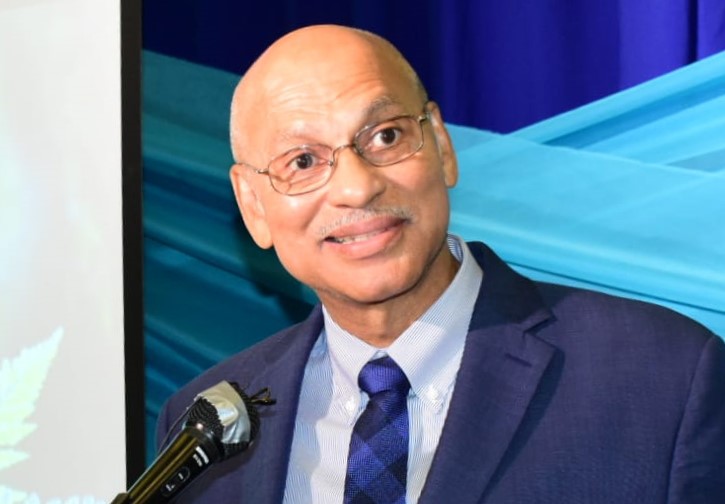
The Barbados Institute of Management and Productivity (BIMAP) has been lauded for implementing a project that will assist the island in the bid to attain its renewable energy targets and become energy efficient by 2030.
The praise came today from Minister of International Business and Industry, Ronald Toppin, as the educational institution and ‘Leader in Workforce Development’ launched its “Greening Project” at BIMAP’s Wildey, St. Michael headquarters and on the Zoom platform.
Noting it would prove beneficial to BIMAP’s long-term existence and service delivery, Minister Toppin described it as “apt” as the aim of Government is to transition the country to become “the first 100 per cent fossil fuel free island state in the world by 2030, and to reduce greenhouse gas emissions across all sectors to as close to zero as possible”.
He acknowledged the contribution of the United Nations Development Programme and the World Bank to the initiative and stressed the alliance between BIMAP and these agencies was commendable as Barbados had, through collaboration, benefitted from their assistance and support on several occasions.
BIMAP’s collaboration with the Samuel Jackman Prescod Institute of Technology was also commended as the two are expected to explore opportunities for collaboration in areas of mutual interest, including BIMAP’s embarking on the integration of greening and renewable energy into programming, and also in the area of training.
“This partnership in itself speaks volumes on the synergies which have been happening between government and private training institutions, as collectively, we all aspire to one common goal,” observed Mr. Toppin.
He reminded those gathered of repeated calls at the domestic, regional and international levels for “at risk” countries, like Barbados, to rally together to combat challenges of climate change and its adverse effects, and to address countries’ dependence on fossil fuels and non-renewable resources, all in keeping with the United Nations 2030 Agenda for Sustainable Development.
Elaborating, Mr. Toppin said the island, like many small island developing states, possessed many inherent economic, social, and environmental vulnerabilities, including susceptibility to natural disasters, the climate crisis and other extreme events, a small population, limited land and natural resource base, and being a small open economy.
“These precarious realities, if further compromised, will undermine not only the gains that have been made in the past, but also the Sustainable Development Goals of the future.”
The International Business Minister told Barbadians that Government had developed the Barbados National Energy Policy 2019-2030 outlining how this goal would be met and the thrust to become a greener economy was linked to the country’s international commitment to the implementation of the SDGs and its Nationally Determined Contributions.
He further noted that at a recently held High-Level Dialogue on Climate Action in the Americas, co-organised by the Governments of Argentina, Barbados, Chile, Colombia, Costa Rica and others, Prime Minister Mia Amor Mottley had re-emphasised the need to remain committed to a protected environment, stable society, and a sustainable and resilient economy for citizens.
Quoting the Prime Minister, Mr. Toppin said: “This will be achieved through accelerated investments to significantly increase the share of renewable energy in the electricity generation mix; … fully transitioning the public and private transport sector to electric or alternatively-fuelled vehicles, decreasing fossil fuel consumption and improving energy efficiency across all sectors.”
